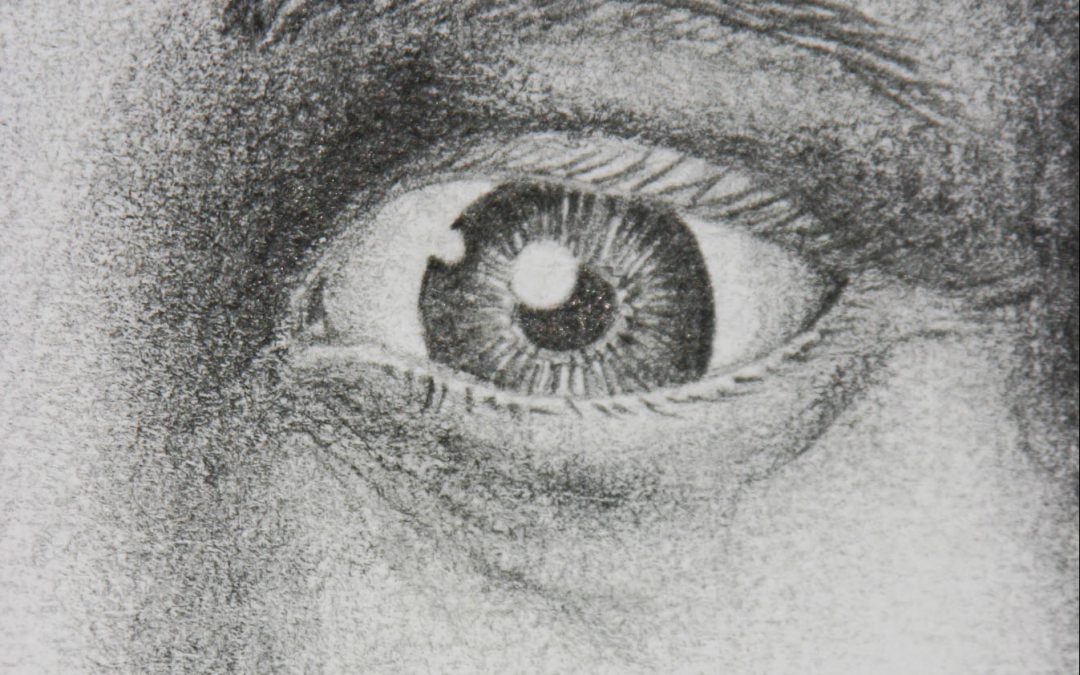“If any man will do his will, he shall know of the doctrine, whether it be of God or whether I speak of myself.” John 7:17
I’ve always liked to draw, I guess I have a knack for it, but I haven’t always been good at it. As a kid, a little success and a little praise was all the motivation I needed to continue to pursue it. Over the years as I’ve shared my art, people have said to me: “I wish I could do that!” and I think “well, why don’t you?”
If you want to draw, you just have to do it. If you want to get good at it, you just have to do it a lot. A drawing teacher once told me that if I wanted to be good at drawing eyes, all I needed to do was draw five hundred eyes.
Once I got serious about learning to draw, there were rules to learn. Rules about making lines, rules about shading and color and light and rules about seeing the world around me. One of the secrets to drawing realistically is to learn to see realistically. As I learned to follow the rules, I began to be a good technical drawer, and part of learning technique was doing the work. Knowing the why’s and wherefore’s is pointless without practical experience. You may read about it in a book but it has to get into the muscles of your hands- that takes practice. As I practiced technical skills, something else began to happen, something a little mystical, a little zen, something that can’t be taught or learned without experience; I began to understand principles. Once I understood the principles, I was on my way to becoming an artist. The missing link between excellent technician and great artist is figuring out a meaningful way to apply skill when you’ve mastered the techniques. What will you do with that skill? What’s the point of knowing principles if you don’t express them? Most teachers just teach technique and hope that their students will pick up expression along the way, and as I put in the work, I did.
Now, after years of drawing, I can draw eyes without thinking about the rules. I’m not a great artist by any stretch, but I understand the principles of drawing eyes. Now, I do draw more than just eyes, and there are many things that I’m just not that good at drawing. There are far too many elements of drawing for anyone to hope to master; there’s always something more to learn, someone that’s better than you or someone that thinks you’re an idiot, but I still love it. I can’t not do it.
So, here are some questions for the analogy: once you understand and internalize the principles, are the rules still important? Does that kind of understanding cause a change in thinking that doesn’t require the constant checking of the instructions? Is it okay to live in the safety of compliance, letting another dictate your behavior?
I would say that obedience to rules is a path that leads to a life governed by principles. Once you have truly absorbed and adopted the principles, obedience becomes irrelevant. The application of this ideal is very personal. Each of us must judge progress based on our individual understanding of gospel principles. This is not likely to happen if we believe that obedience is an end in itself or if we obey only to receive a specific reward. Absolute compliance with the natural laws of the universe is not realistic in mortality, but obedience is the most effective method for learning and understanding the principles of eternity.





Interesting thought. I have come to agree for sure that, “obedience is an end in itself”
I look at my adult children and I don’t want them to “obey” me. I do hope they ask for advice and take it under consideration, but I support them if they go contrary to my advice. Heck – I am going to be dead before long and if I have not taught them how to make decision then I sucked at being a parent.
I’ve encountered many in the church who view obedience as an end to itself, using the prime example of Abraham’s willingness to sacrifice Isaac as commanded by God. The problem is there are many layers of mortal, fallible leaders between us and God. And sometimes, we are required to choose between competing principles (as Adam and Eve in the Garden of Eden?)
I would agree that obedience helps lead us to a “life governed by principles.” For example, I taught my young children to never run out in the road in order for them to be safe. But as they got older and appreciated the risk, they learned there were “safe” times when they could carefully run out in the road.
Daniel–Awesome eyes!
Assuming that you know why another person is obeying– assuming you know their level of commitment and their personal relationship with God– is extremely judgemental.
Unless, of course, you’ve heard from their mouth that they believe obedience is an end to itself. Obedience is a deeply personal thing and one that you shouldn’t be so quick to judge.
“Unless, of course, you’ve heard from their mouth that they believe obedience is an end to itself. ”
That is pretty much what I’ve heard from people’s mouths. One
bishop told me his duty was to obey, not question, stake leaders and if there is an error, then the stake leader (not the bishop) will suffer the consequences.